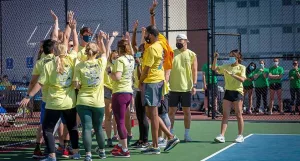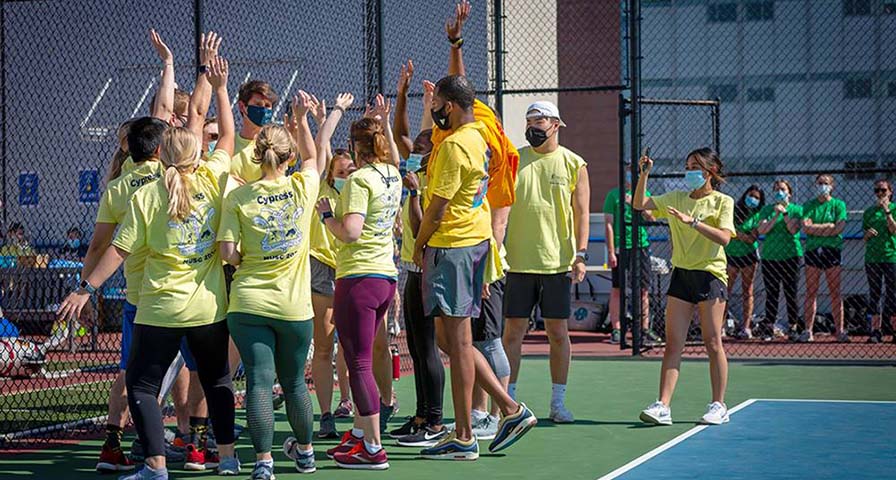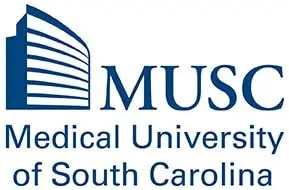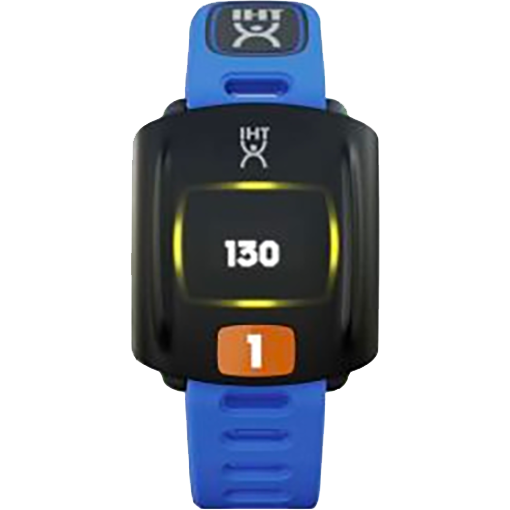Originally published April 11, 2022 by the Medical University of South Carolina.
By Cindy Abole
If there’s one positive takeaway from the past two years of the coronavirus pandemic, it’s recognizing the importance of physical activity and exercise as an antidote for managing pandemic stress.
As people emerge from more than two years of self-quarantining, lockdowns and pandemic isolation, they’re breaking away from periods of inactivity, anxiety and a sedentary lifestyle that puts them at risk for obesity, cardiovascular disease, depression and a number of other chronic health conditions.
 A 2020 study on physical activity and sedentary behavior during the pandemic reported that regular physical activity improves a person’s mood and the body’s immune function while reducing stress – something many of us need right now.
A 2020 study on physical activity and sedentary behavior during the pandemic reported that regular physical activity improves a person’s mood and the body’s immune function while reducing stress – something many of us need right now.
The pandemic pushed a transformation in the health club industry that, like other businesses, encouraged innovation, change, flexibility and a need for more options to meet people’s changed habits and behaviors.
At MUSC, the crew that manages fitness and wellness did not miss a beat. Everyone stayed committed as they navigated through pandemic restrictions, conflicting demands and changing campuswide COVID guidelines and directives to continue the center’s mission to foster healthy lifestyles and promote wellness across campus.
Despite MUSC's Wellness Center facility being temporarily closed during the early months of the pandemic, the center’s team responded and found creative ways, using technology and resources, to connect people and engage them in virtual workouts and yoga sessions that were made available to members, employees, students and especially MUSC Health care team members.
In December, Dustin Jackson was hired to replace Janis Newton, long-serving director of the Wellness Center, who retired. An Atlanta native, Jackson came to MUSC with years of experience managing the University of Georgia’s Student Recreation Center, the second biggest college recreation facility in the U.S. Most recently, he worked with veterans and staff as the Southeast manager of the Physical Health and Wellness program at Wounded Warrior Project in Atlanta, Georgia.
Since Jackson’s arrival at MUSC, he’s focused on managing the center’s operations with his team and responding to member’s needs, popular fitness trends, industry demands and the changes that go along with all of it.
The team, he explained, relies on information gleaned from member surveys, best practices and collected data to determine where they are and where they want to be. He’s open to expanding programs and services to help current and future members to achieve their social, emotional, spiritual and physical health goals.
Gigi Smith, Ph.D., R.N., associate provost, believes that MUSC has a dual responsibility in the community – providing the best health care and influencing wellness among South Carolinians, especially those living with illnesses and chronic health conditions. “If we don’t do both, we won’t have the type of healthy community that all of us are striving for,” Smith said.
“MUSC’s Wellness Center is truly unique,” said Jackson, comparing it to recreational sports centers on other college and university campuses. “There’s a lot of things that MUSC offers that a person won’t see, such as specialized clinical wellness programs for people living with Parkinson’s disease, breast cancer survivor programs and clinical rehab programs, that an academic health science center like ours is able to offer. It’s what attracted me to come here.”
Another draw for Jackson is the community collaboration and partnerships. Many university and college fitness facilities and gyms cater specifically to the institution – its students, faculty and staff. The Wellness Center has been actively engaged with training and working with other health clubs and city, county and community programs, such as the Healthy Charleston Business Challenge, Credit One Charleston Open Tennis Tournament (formerly the Family Circle Cup), Cooper River Bridge Run Expo and many other projects.
With a location on the west side of the Charleston peninsula, it’s typically a convenient walk, jog or bike ride away for downtown residents as well as students and professionals.
“MUSC’s Wellness Center focuses on the Charleston community, which translates to variability in what we can offer and meet the needs of people at different times of their lives. To me that’s exciting. There’s still opportunities that we can tap and explore – the sky’s the limit in what we have to offer,” said Jackson.
The center features a variety of large-group classes from yoga, cycling, strength conditioning and cardio workouts to Boot Camp, H.I.T.S. program, pilates, and Health Works cardio. The center also offers small-group programs like Pilates, PowerUp Cardio Quest and Next Wave, a science-based fitness training program, in addition to personalized training and nutrition counseling.
The multi-level 80,000 square-foot facility offers a cardio room, newly renovated free weight area; junior Olympic-sized indoor pool; group exercise studios; cycling-spin studio; boxing studio; multipurpose gym; paddle and racquet courts for racquetball, squash, tennis and pickleball; indoor and rooftop running tracks; and locker room areas.
“We want to help people to realize that their health is important and a priority in their lives, and that it’s good to actively exercise. A healthy lifestyle leads to better outcomes,” he said.
Boost Student Wellness with the IHT ZONE heart rate monitor:




